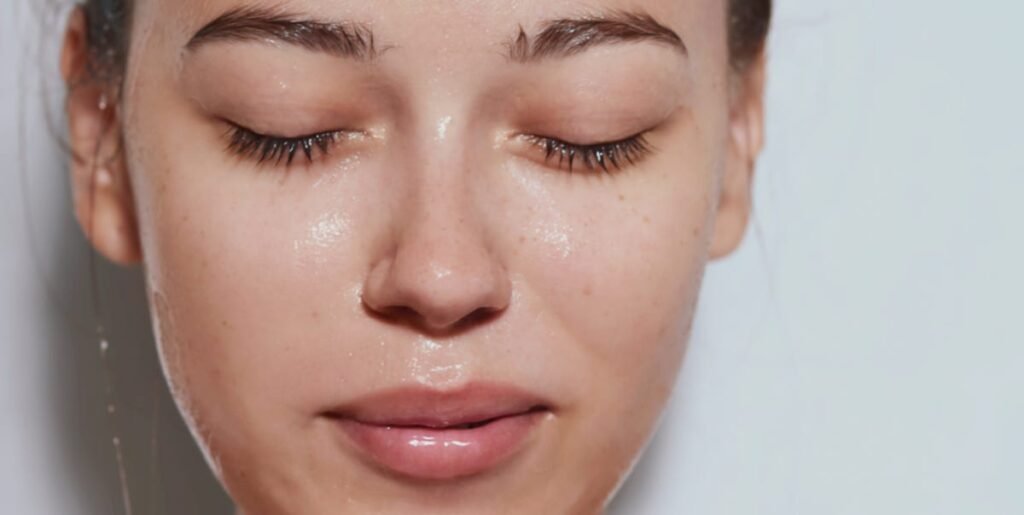The Ultimate Guide to Combatting Dehydrated Skin
Understanding Dehydrated vs. Dry Skin
If you’ve ever felt your skin tight, scaly, or stripped of moisture, you might be dealing with dehydrated skin. But is dehydrated skin the same as dry skin? The answer is no.
- Dry Skin is a genetic skin type that naturally produces less oil, leading to a matte, often dull appearance.
- Dehydrated Skin, on the other hand, results from external factors, such as extreme weather, over-exfoliation, or lack of hydration, causing irritations and a compromised skin barrier.
What Causes Dehydrated Skin?
Several factors can lead to dehydrated skin:
- Climate: Cold weather or excessive heat can strip moisture from your skin.
- Skincare Products: Harsh exfoliants or frequent bathing can aggravate skin dehydration.
- Diet: Low water intake can directly impact your skin’s hydration levels.
Essential Ingredients for Hydration
When searching for effective skincare products, focus on these key ingredients:
- Hyaluronic Acid & Glycerin: Found in many hydrating serums, these humectants draw moisture into the skin.
- Ceramides: These lipids help repair the skin barrier, locking in moisture.
- Emollients: Ingredients like squalane, shea butter, and lanolin nourish and hydrate the skin.
Ingredients to Avoid
Certain factors can contribute to moisture loss, including:
- Over-exposure to cold or hot weather.
- Underlying skin conditions like eczema.
Always consult with a dermatologist if you’re unaware of the underlying causes of your dehydrated skin.
The Role of Potent Actives
While ingredients like retinoids and glycolic acids can work wonders, they can also lead to irritation if used excessively. It’s essential to use these products judiciously to prevent compromising your skin barrier.
Effective Hydration Routine
Morning Routine
- Gentle Cleanser: Use a product free from alcohol and fragrances.
- Hydrating Serum: Opt for formulations with hyaluronic acid or ceramides.
- Moisturizer: Choose lightweight options that seal hydration effectively.
- Sunscreen: Finish with a broad-spectrum SPF of at least 30.
Evening Routine
- Makeup Remover: Use micellar water or cleansing oil.
- Double Cleanse: Follow with a hydrating cleanser.
- Retinol (optional): If your skin tolerates it, add a hydrating retinol treatment.
- Night Cream: Use a thicker moisturizer for added nourishment while you sleep.
Dietary Changes to Enhance Skin Hydration
What you eat plays a crucial role in skin hydration. Incorporate fiber-rich foods, such as:
- Spinach
- Berries
- Melons
- Bell Peppers
These foods help increase your water intake and support overall skin health.
The Impact of Water Intake
Drinking water is essential, but it alone may not be enough. Scientific studies suggest that adequate water consumption can enhance skin hydration and improve its overall condition. While it might not directly affect the skin barrier, maintaining hydration is beneficial when combined with an effective skincare regimen.
Expert Insights
Consulting with professionals can lead to personalized skincare advice. Here are some industry authorities to consider:
- Dr. Whitney Bowe: Board-certified dermatologist.
- Dr. Jeannette Graf: Dermatology educator at Mount Sinai.
- Dr. Mona Gohara: Associate clinical professor at Yale.
- Dr. Karan Lal: Double board-certified dermatologist.
By focusing on the right ingredients and developing a balanced skincare routine, you can effectively combat dehydrated skin and achieve a radiant, hydrated complexion.
For more expert insights and information on skin care, consider visiting American Academy of Dermatology and WebMD Skin Care for additional resources.


